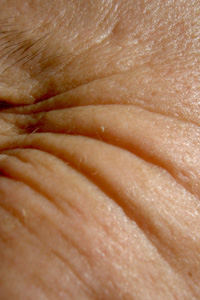Put Your Best Face Forward

Laser treatments like those offered at Texas Tech Physicians Dermatology can help diminish wrinkles, acne scars, blood vessels and sun spots.
Texas Tech Physicians Dermatology is now offering two state-of-the-art cosmetic systems to help lessen the appearance of common skin complaints often caused by overexposure to the sun:
- Sun spots: flat spots of increased pigmentation usually brown, black or gray, according to the Mayo Clinic. They vary in size and usually appear on areas of skin most exposed to the sun.
- Wrinkles: Sun exposure and age are the major contributors to wrinkles, according to the Mayo Clinic. But genetics and environmental factors like heat, wind and dust, and smoking also may contribute to wrinkles.
- Acne: one of the most common skin diseases in the U.S., affecting more than 40 million Americans, according to the American Academy of Dermatology. Acne is caused by overproduction of oil by enlarged oil glands in the skin, blockage of the hair follicles that release oil and growth of bacteria within hair follicles. Acne sufferers are encouraged to prevent scarring by avoiding squeezing or picking at blemishes and avoiding overexposure to the sun.
- Blood vessels: Broken blood vessels can occur on the face when the skin is exposed to aggravation or extreme temperatures.
The dermatology department’s new Fractionated Carbon Dioxide Laser procedure resurfaces the skin and improves wrinkles, acne scars and sun spots. The Intense Pulsed Light system treats sun spots and blood vessels.
Jennifer Smith, M.D., Texas Tech Physicians Dermatology, recommends men, women and children wear sunscreen to prevent wrinkles, age spots, blood vessels and most importantly, the development of skin cancer.
However, for those looking to address damage that has already been done by too many summer hours spent under the sun, Smith said laser treatments may help.
“Each laser treatment will have different effects depending on a patient’s unique needs,” Smith said.
Procedures can take anywhere from 30 minutes to an hour, depending on the area of skin being treated. A topical numbing cream may be applied to minimize pain.
Side effects may include redness, scaling, itching and swelling. Healing time will vary between one and two weeks.Related Stories
Celebrating Veterans: TTUHSC’s General Martin Clay’s Legacy of Service and Leadership
From his initial enlistment in the Army National Guard 36 years ago to his leadership in military and civilian health care management roles, Major General Martin Clay’s career has been shaped by adaptability, mission focus and service to others.
Texas Tech University Health Sciences Center School of Nursing Named Best Accelerated Bachelor of Science in Nursing Program in Texas
The TTUHSC School of Nursing Accelerated Bachelor of Science in Nursing (BSN) program has been ranked the No. 1 accelerated nursing program in Texas by RegisteredNursing.org.
TTUHSC Names New Regional Dean for the School of Nursing
Louise Rice, DNP, RN, has been named regional dean of the TTUHSC School of Nursing on the Amarillo campus.
Recent Stories
The John Wayne Cancer Foundation Surgical Oncology Fellowship Program at Texas Tech University Health Sciences Center Announced
TTUHSC is collaborating with the John Wayne Cancer Foundation and has established the Big Cure Endowment, which supports the university’s efforts to reduce cancer incidence and increase survivability of people in rural and underserved areas.
TTUHSC Receives $1 Million Gift from Amarillo National Bank to Expand and Enhance Pediatric Care in the Panhandle
TTUHSC School of Medicine leaders accepted a $1 million philanthropic gift from Amarillo National Bank on Tuesday (Feb. 10), marking a transformational investment in pediatric care for the Texas Panhandle.
Texas Tech University Health Sciences Center Permian Basin Announces Pediatric Residency Program Gift
TTUHSC Permian Basin, along with the Permian Strategic Partnership and the Scharbauer Foundation, Feb. 5 announced a gift that will fund a new pediatric residency.
